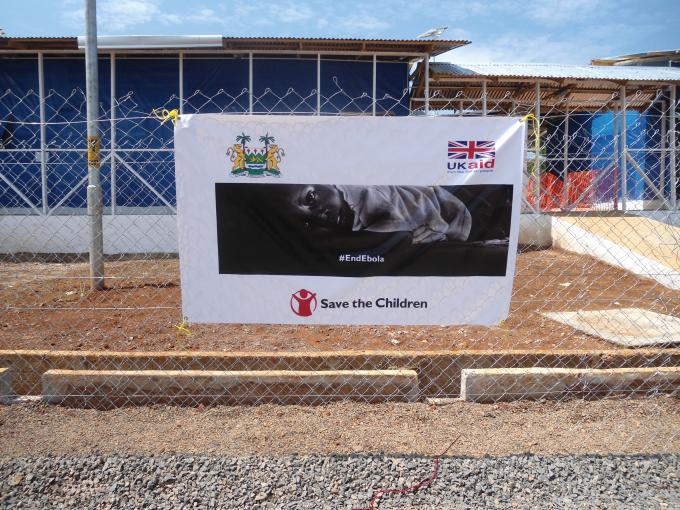Don’t just respond-Rebuild

Today businesses and vendors are lucky if they get their full shipments of food delivered and when they do, the prices of food are now high enough to keeps buyers away, especially poor families whose bread winners have lost their jobs as a result of the outbreak. But that’s not the only reason the markets are quieter now. Ebola has created a real sense of fear in this city and across the country. What use to be Saturday nights out with friends is now Saturdays indoors catching up with loved ones from the safety of a telephone. The government has enforced a ‘time surge’ to try to minimise the spread of the virus which means all businesses close by 6pm on weekdays and noon on Saturdays. On Sundays nothing is allowed to open.
When I returned to my home country of Sierra Leone in 2000, I, like many of my fellow countrymen was eager for a fresh start. Our country had just endured eleven years of violence, infrastructures were destroyed and our children were scarred. It took years for Sierra Leoneans to move passed the psychological impact of the war as the government worked to reintegrate fighters back into the society. But we decided to move forward, and soon our country was beginning to come back to life. Our human index began to improve, economic projections were positive, and tourism started picking up.
That all changed with the outbreak of Ebola. Sierra Leone’s once growing economy has now come to a grinding halt. The World Bank’s latest economic projections for Sierra Leone and our neighbour Liberia are dismal. When investors started to flee after the outbreak, their departure contributed to a brewing and potentially explosive mix of high numbers of youth who will have no prospect of finding jobs once the epidemic subsides.
The biggest challenge will be the rebuilding of health systems. Sierra Leone, like many conflict-affected countries had a health infrastructure which was fragile long before the Ebola outbreak. The lack of qualified health workers and poorly stocked health facilities meant the country was among one of the most difficult places in the world for a mother to give birth.
If access to basic care was difficult in Freetown, it was virtually non-existent in rural areas. Often, women would have to walk for miles while in labour, just to reach a health facility which she had no guarantee would have the right equipment or medicines to safely deliver her baby. Health workers worked tirelessly in understocked, underserviced facilities to provide the best care possible, so Ebola was the last thing we needed, and has strained the health system to the point of near collapse. So many health workers lost their lives to the virus, and those who survived have either been redirected to the response efforts or are too scared to turn up to work. But it’s not just access that’s a problem—it’s a lack of trust in the system. As more and more health workers died from the disease, communities became suspicious of a health system which couldn’t even protect its own.
Another big consequence of the Ebola outbreak is the impact it has had on education. Schools across the country have been closed since last March and the work to re-open them will be as difficult as the response operation itself. Many of the teachers have been killed by the virus and those who survived left to find new jobs. Children who lost their parents also lost their source of funding for their education which means they are now left unable to afford tuition. What’s more, once the schools were closed they went from being places of learning to emergency treatment centres, so the job of turning the schools into safe spaces for children will take some time.
What’s heart-breaking is that this type of disaster was completely preventable. We’ve been campaigning for years to get governments to invest more in strengthening the health system to prevent this type of disaster. Governments and donors are starting to put the plans in place to get these critical health services back on line, and to strengthen our country’s health system so that this epidemic leaves us stronger and more prepared to tackle future challenges. But I am scared that in a few months’ time once Ebola is contained and Sierra Leone drops from the news, donors, governments and the public will no longer be interested in our small country. In order to make sure we don’t have a repeat of this, we need to make sure that the international response lasts beyond containing the immediate epidemic.
The virus hasn’t just killed thousands and kept millions of children out of school, it’s also destroyed our way of life which we fought so hard to build back after the civil war. It has suspended the sense of camaraderie amongst family and friends – no hugs, no physical show of empathy—everyone keeps their distance, which is not the norm in our culture. It will take years to rebuild the communities, but we’ve already proven that we can build back from destruction and create a thriving society. So let’s begin.
 Sierra Leone
Sierra Leone